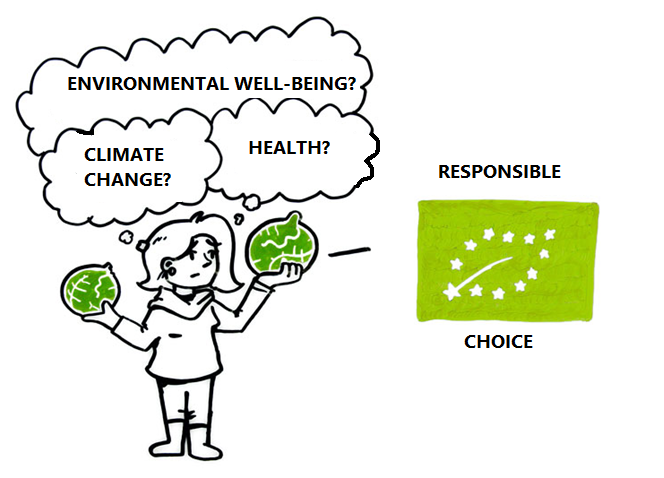

Viewpoints
Viewpoints is a blog in which different writers express their views and opinions on current topics. A new blog post is published about once every four weeks.
You can propose texts by e-mail to viestinta@kesko.fi. The maximum text length is 2,000 characters.
Marja-Riitta Kottila: Organic is a smart choice
Many of us want to make good choices in our everyday lives. The kinds of choices that support the well-being of ourselves and those close to us as well as that of nature and production animals. But how can we know what is good? And can it be trusted?

Organic products make for an easy choice. Organic producers commit to following more strict criteria to secure the well-being of nature and production animals and the production of food that is as natural as possible.
The criteria mean, for example, that organic fields are not fertilised with industrial chemical fertilisers and that no chemical pesticides are used in cultivation. The non-toxic soil and plants offer good conditions for rich biodiversity both above and below ground. Research has shown that organic fields are home to almost a third more of plant and animal species than conventionally cultivated fields. In addition, organic cultivation helps curb climate change as the methods used generate organic matters containing carbon into the soil. The nutrient discharges of organic fields into water systems are also smaller than conventionally.
Organic animals are allowed their natural behaviours. Pigs can grub, chickens can scratch the ground and calves can live in groups with their peers. During the summer, all organic animals are let outside and organic cattle roam the pasture, where their manure offers nutrition and protection to insects and beetles, who in turn are food for small birds.
Organic animals eat organically produced feed. This means that when you enjoy organic meat or milk, you are protecting nature from chemicalisation and water systems from nutrient discharges.
Organic does not stop at the farm gate – it extends to food production. The production of organic products permits only a fraction of the levels of additives and excipients permitted in other food. For example, organic foods prohibit artificial sweeteners and colourants.

The adherence to the requirements for organic products are monitored through yearly inspections. In Finland, the inspections are carried out by the authorities. The actors who pass the inspection mark their products with the EU organic label that makes organic products easy to recognise. As the selection of organic products expands, making responsible choices becomes even easier.
Marja-Riitta Kottila
Executive Director, Pro Luomu ry